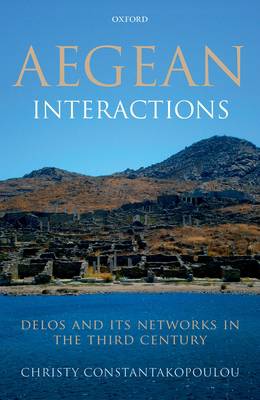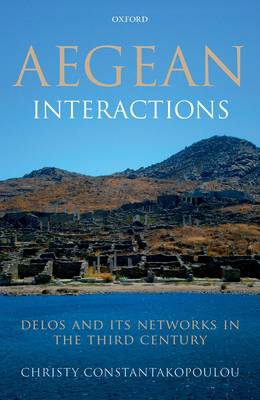
- Afhalen na 1 uur in een winkel met voorraad
- Gratis thuislevering in België vanaf € 30
- Ruim aanbod met 7 miljoen producten
- Afhalen na 1 uur in een winkel met voorraad
- Gratis thuislevering in België vanaf € 30
- Ruim aanbod met 7 miljoen producten
Zoeken
Aegean Interactions
Delos and its Networks in the Third Century
Christy (Senior Lecturer in Ancient History, Senior Lecturer in
Hardcover
€ 187,45
+ 374 punten
Omschrijving
The third century BC was a troubled period of ancient Greek history, not least due to the power struggles raging in the Aegean. This volume explores the history of interaction in the region, focusing on the island of Delos and drawing on material evidence to show how active networks of political, religious, and cultural interaction were formed.
Specificaties
Betrokkenen
- Auteur(s):
- Uitgeverij:
Inhoud
- Aantal bladzijden:
- 350
Eigenschappen
- Productcode (EAN):
- 9780198787273
- Verschijningsdatum:
- 21/09/2017
- Uitvoering:
- Hardcover
- Afmetingen:
- 242 mm x 165 mm
- Gewicht:
- 684 g

Alleen bij Standaard Boekhandel
+ 374 punten op je klantenkaart van Standaard Boekhandel
Beoordelingen
We publiceren alleen reviews die voldoen aan de voorwaarden voor reviews. Bekijk onze voorwaarden voor reviews.







